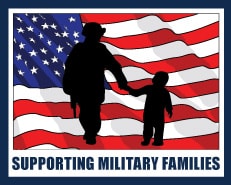Abuse and Neglect in Nursing Homes
 The 2010 U.S. Census recorded the greatest number and proportion of people age 65 and older in recorded history: 40.3 million, or 13% of the total population. By 2050, people age 65 and older will comprise 20% of the total U.S. population. America’s fastest growing population segment is people age 85 and up, and many live in a nursing home. So now consider what that means for corporations seeking a profit from owning these facilities.
The 2010 U.S. Census recorded the greatest number and proportion of people age 65 and older in recorded history: 40.3 million, or 13% of the total population. By 2050, people age 65 and older will comprise 20% of the total U.S. population. America’s fastest growing population segment is people age 85 and up, and many live in a nursing home. So now consider what that means for corporations seeking a profit from owning these facilities.
ABC News recently reported that officials cited 1 in 3 long-term care facilities or nursing homes for abuse or neglect. Some of the problems included untreated bedsores, poor medical care, malnutrition, dehydration, accidents, and bad sanitation and hygiene. But those problems are just the beginning. Prosecutors charge that staff at some facilities commit physical or sexual abuse. At others, they fail to protect people from abuse by other residents. Some residents suffer serious injuries: broken bones, soft-tissue injury, open wounds, and even traumatic brain injury. Neglect, physical abuse, financial exploitation, and sexual abuse are the four most common types of abuse in nursing homes. So now we must consider the scope of this problem.
How Many Americans Live in a Nursing Home?
On any given day, 1.6 million people live in licensed nursing homes. Another 1 million live in an estimated 45,000 residential care facilities. These facilities have various names like: personal care homes, adult congregate living facilities, domiciliary care homes, adult care homes, homes for the aged, and assisted living facilities. The elderly in nursing homes are among the most vulnerable members of our society. Residents depend on the facility for food, medicine, dental care, a bed, shelter, and help with virtually every daily activity.
Further, in a study of 2,000 nursing home residents, 44% said they’d been abused and 95% said they’d been neglected or seen another resident neglected. Over 50% of nursing home staff admitted to mistreating older patients within the prior year in one study.
Causes of Abuse in a Nursing Home
Another recent report on abuse at nursing homes provides insight into the root causes. Studies show that stressful working situations, particularly staffing shortages, staff burnout, and poor staff training are to blame. Corporate nursing home owners fail to train staff on how to handle residents’ behavior. Many residents suffer emotional, mental, or memory disabilities. Most residents of nursing homes have some form of dementia or alzheimer’s disease. Additionally, the staff of these facilities are inexperienced in dealing with the complex behaviors involved. Focus group interviews with certified nursing assistants (CNAs) show that many believed combative behaviors, even among residents with mental illnesses or Alzheimer’s disease, justified some “rough handling” by staff.
Click here to download the Research Brief Prepared by The National Center on Elder Abuse
Residential living facilities and nursing homes must reasonably and responsibly care for their residents. They must protect residents from abuse at the hands of staff or other residents in the facility. Staff members cannot look the other way when they know abuse is occurring, they must report it. Nursing homes must also meet staffing level standards. When corporate owners understaff their facilities, they cause neglect and injury.
Holding Facilities Responsible for Their Actions
Finally, nursing homes and assisted living facilities must keep residents safe. Some actions of staff against residents or residents against each other are criminal. You can report them to police and the state may prosecute. Those cases are usually the most severe. But even then, the criminal prosecution often does not get all the money that the victims deserve. Even when the state brings criminal charges for resident abuse, the victim must also file a civil lawsuit too.
The government will not prosecute many cases of nursing home abuse and neglect. But the victim of the abuse or neglect may still bring civil lawsuit against the nursing facility. This allows them to get money for their injuries and their pain and suffering. Additionally, in some cases, the court awards “punitive damages,” forcing the facility to pay money as a punishment for recklessness.
Victims find hope mainly in the civil law system. Contact a personal injury attorney with experience in nursing home abuse cases to get justice for your loved one. We handle these cases at East Coast Trial Lawyers. We fight for our clients and their families after elder abuse. Initial consultations on nursing home abuse cases are free. There are no attorney’s fees unless we recover money. Contact us for a free consultation.

